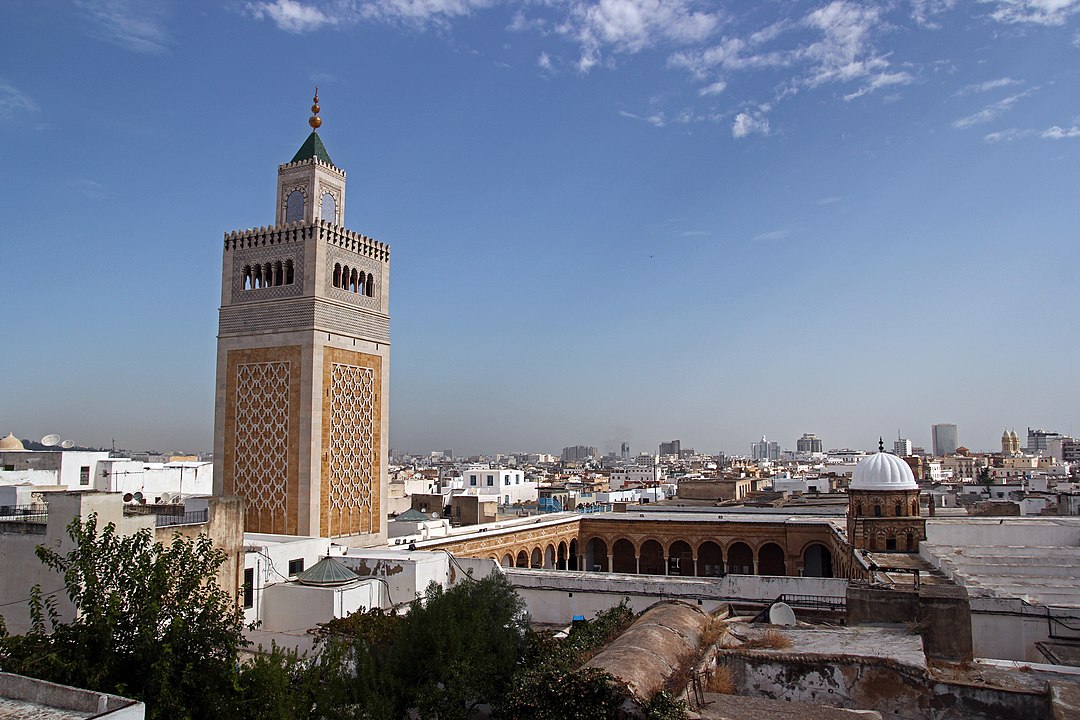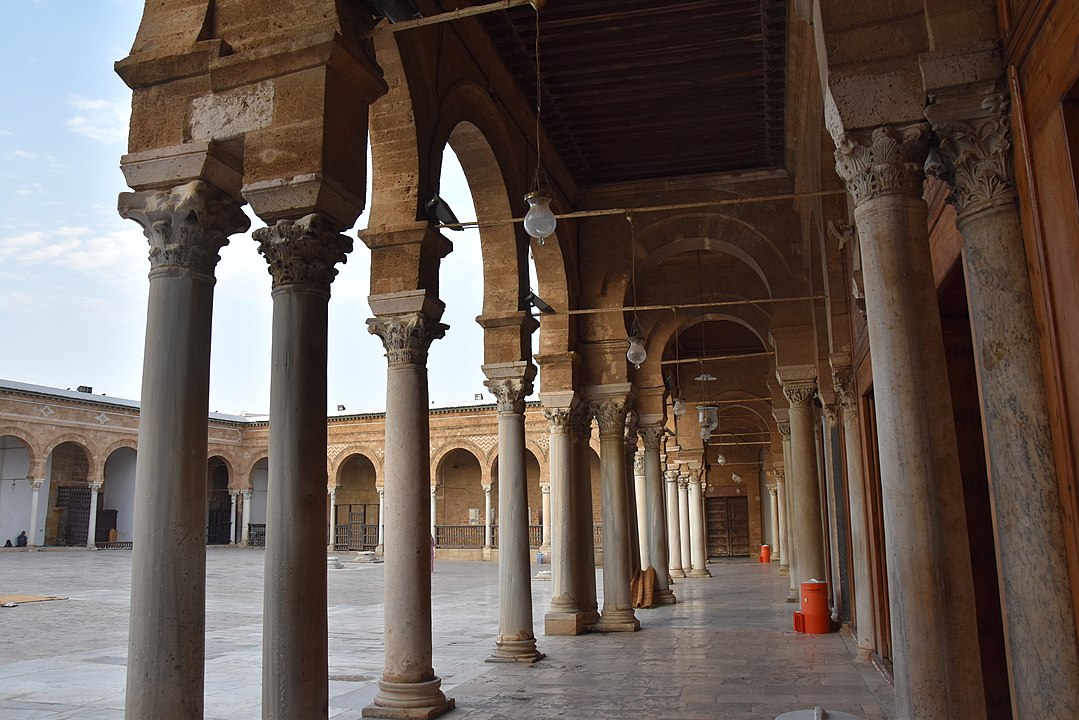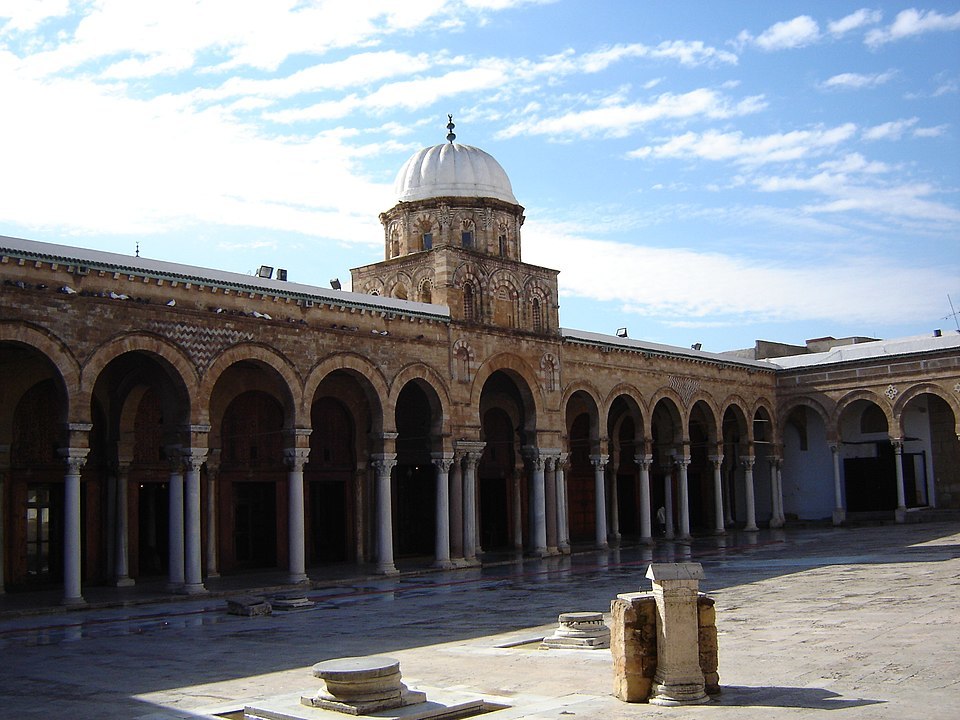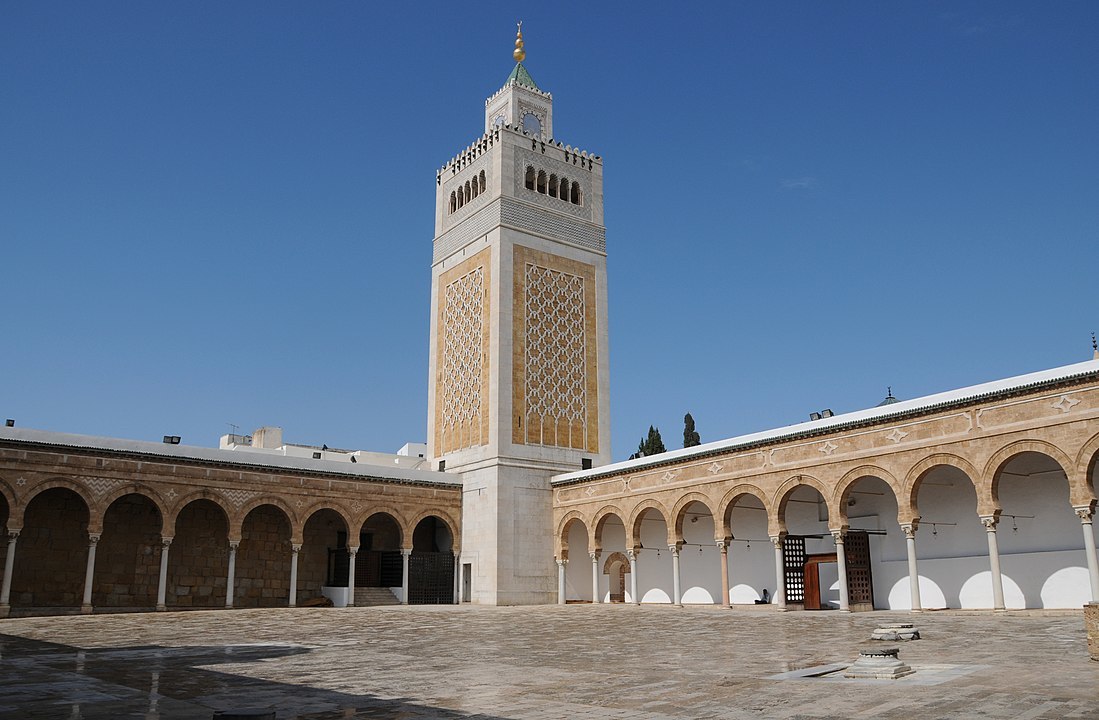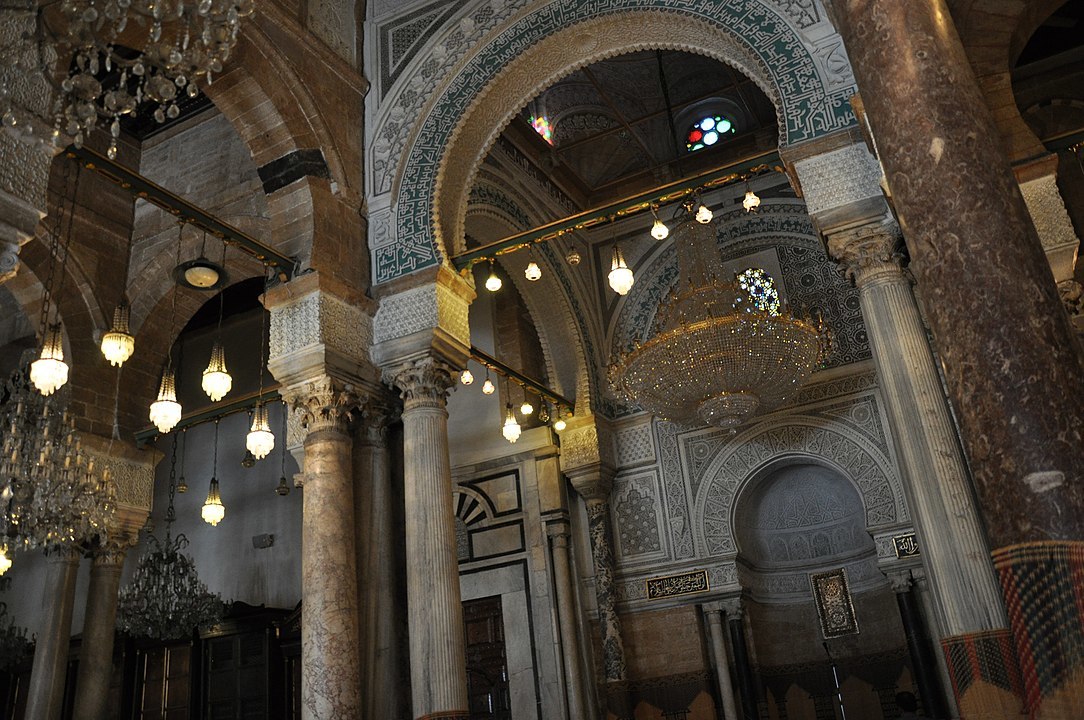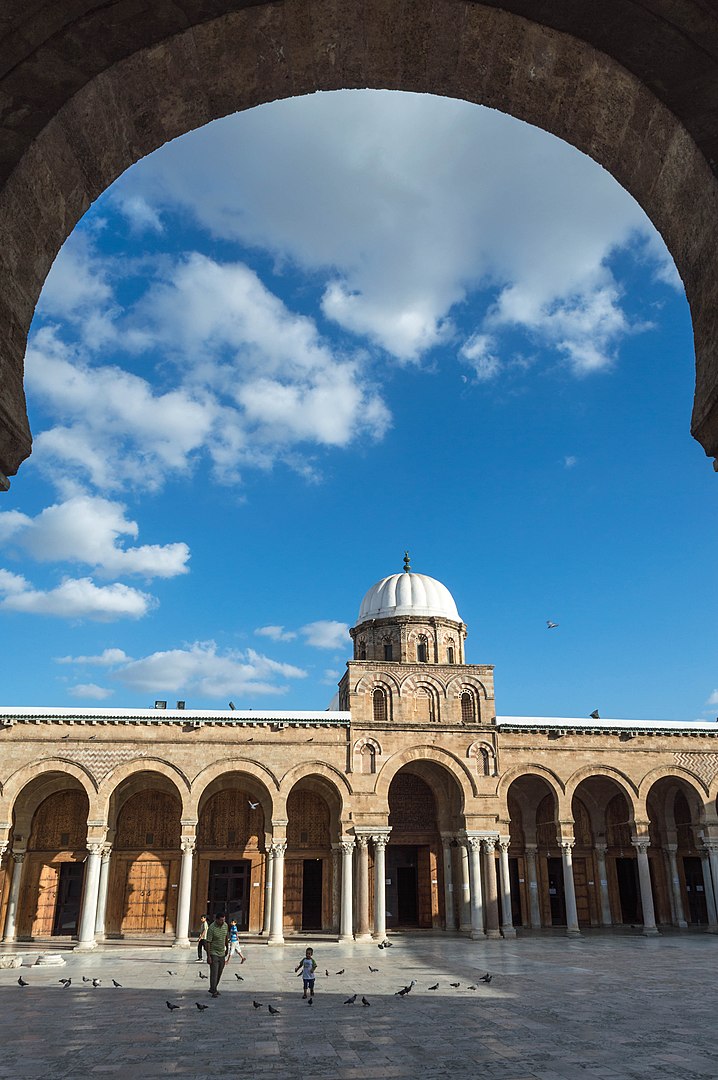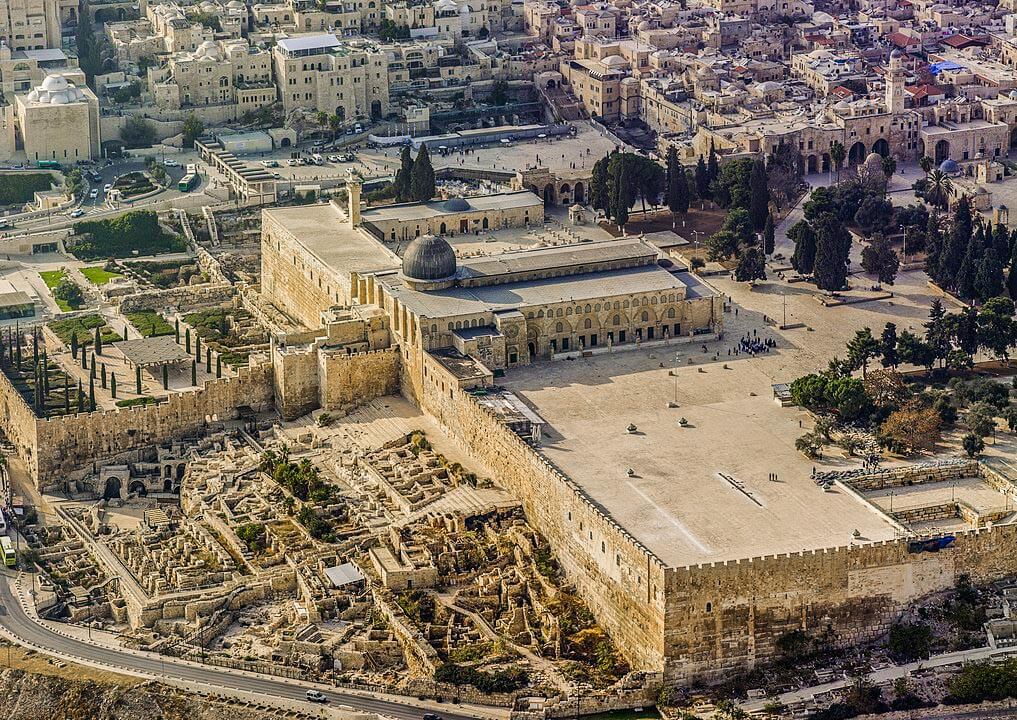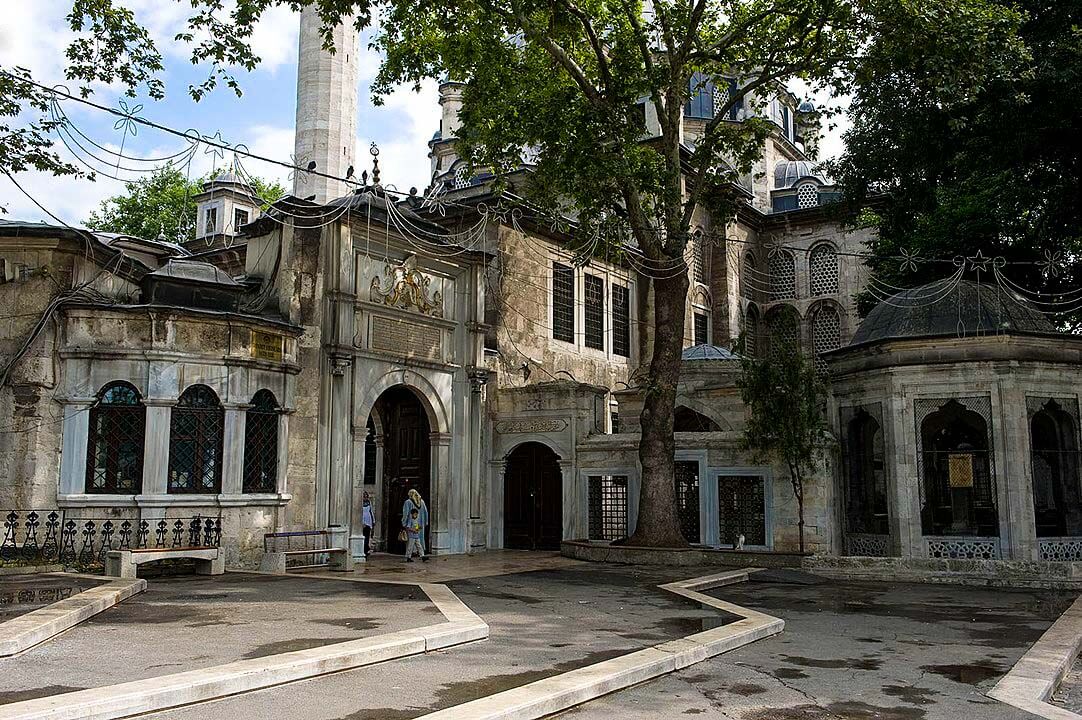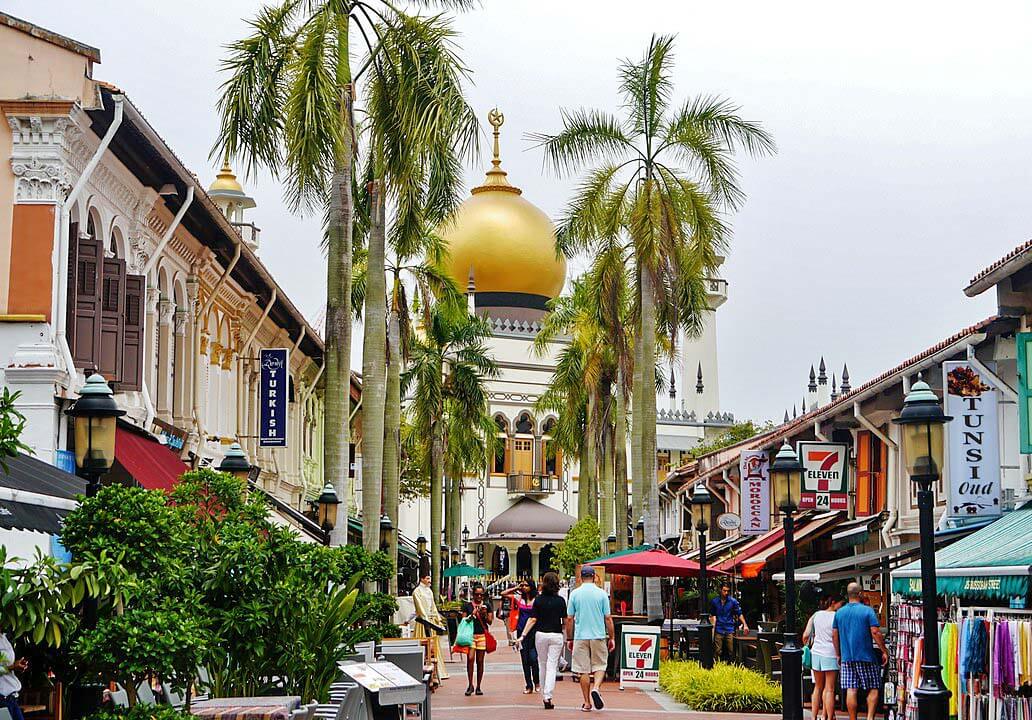Tunis, Tunisia
Coordinates: 36.797446, 10.171194
Al-Zaytuna Mosque, also known as Ez-Zitouna Mosque, and El-Zituna Mosque, is a major mosque at the center of the city of Tunis in Tunis, Tunisia.
The mosque is the oldest in the Capital of Tunisia and covers an area of 5,000 square metres (1.2 acres) with nine entrances.
The mosque is known to host one of the first and greatest universities in the history of Islam.
Many Muslim scholars were graduated from the Al-Zaytuna for over a thousand years.
From Ibn Khaldun – the first social historian in history, Ibn Arafa – one of the greatest scholars of Islam, Imam Maziri, the great traditionalist and jurist to the famous Tunisian poet Aboul-Qacem Echebbi and countless others all taught there.
Name of the mosque
One legend states that it was called “Mosque of Olive” because it was built on an ancient place of worship where there was an olive. However the most accepted explanation is that transmitted by the 17th century Tunisian historian Ibn Abi Dinar, who spoke about the presence of the tomb of Santa Olivia at that location.
Recent research has shown that indeed this mosque was built on a Christian basilica. With the advent of Islam, the church was converted into a mosque, retaining the dedication, but translating the name into Arabic.
The saint is particularly venerated in Tunisia because it is superstitiously thought that if the site and its memory are profaned then a misfortune will happen; this includes a belief that when her relics are recovered Islam will end.
History
Ez-Zituna was the second mosque to be built in Ifriqiya and the Maghreb region after the Mosque of Uqba in Kairouan.
For centuries, Qirwan was the early centre of learning and intellectual pursuits in Tunisia and North Africa in General.
Starting from the 13th century, Tunis became the capital of Ifriqiya under Almohad and Hafsid rule.
This shift in power helped al-Zaytuna to flourish and become one of the major centres of Islamic learning, and Ibn Khaldun, the first social historian in history was one of its products.
The flourishing university attracted students and men of learning from all parts of the known world at the time.
Along with theology; mainly the Qur’an, the university taught jurisprudence, history, grammar, science and medicine.
When it comes to books and libraries, Ez-Zituna libraries were the richest among North African counterparts. It had several collections totalling in the tens of thousands of books.
One of its libraries, el-Abdaliyah included a large collection of rare and unique manuscripts. The manuscripts covered almost all subjects and sciences, including grammar, logic, documentations, etiquette of research, cosmology, arithmetic, geometry, minerals, vocational training, etc.


